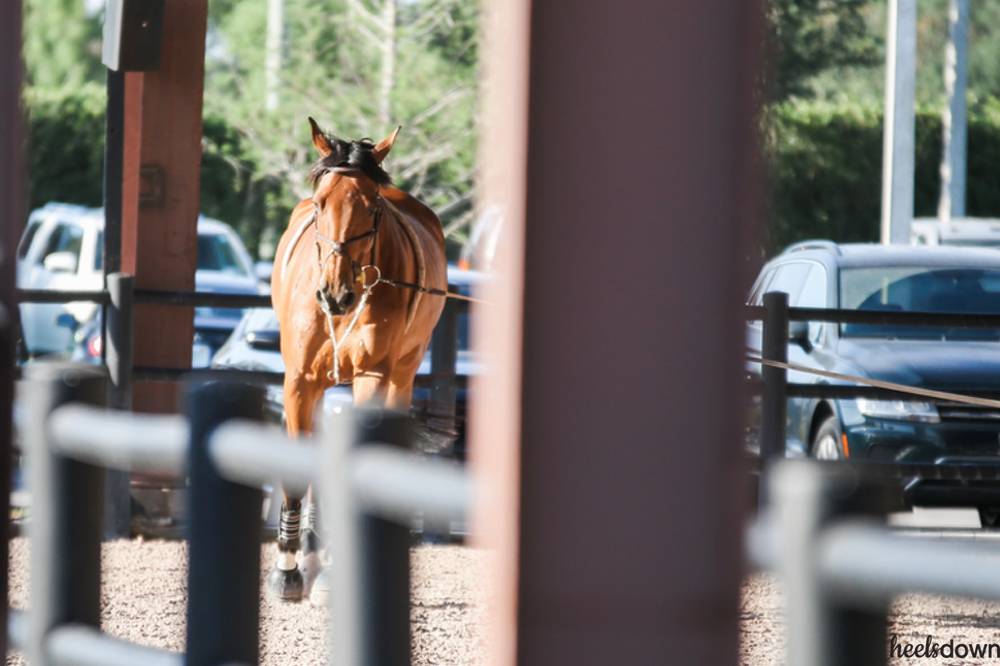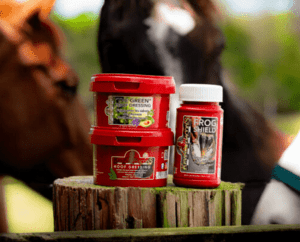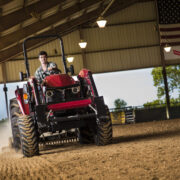No Such Thing As A Bad Horse

When I first started my small colt-breaking business, a family friend asked if I would like to work with a three-year-old large pony he had just gelded due to his increasingly stud-like behaviors.
Like the blissfully ignorant, young trainer I was (and, unfortunately, in some ways still am), I agreed to take the pony into my training program before I totally understood the gravity of the situation.
The pony backed off the trailer and tossed his head with I couldn’t quite tell what— Excitement for a new place? Frustration from being on a trailer alone for two hours? Anger at the chain being pulled down tightly over his nose by his handler? I didn’t know. As the stable hand unloaded the pony’s feed, supplements, and supplies off the trailer, I asked the owner more about the his previous training. The owner told me that the horse had been worked in a round pen quite a lot and was responding well to cues and turning around nicely.
Like This Story? Try: I’m A Bad Horse Mom. Here Are All The Reasons Why
He also mentioned the reason why he had asked me to work with the now-gelding. “Our trainer got after him with a whip real bad the first time she got a saddle on him,” he told me. “I didn’t like it—and neither did he. Chased her right out of the round pen.”
I laughed in the moment, sure that the story had been exaggerated. It wasn’t until I took the pony out of the stall the next morning that I realized that he was being serious.
I know that pony taught me more about myself, my strengths and weakness as both a trainer and a person, and for that I am truly grateful.
While leading him out of his stall, he reared straight up and struck out at me. I was terrified. My horses reared and stuck out in the pasture while playing, but I had never had a horse be so malicious toward me. I felt overwhelmed, worried about how out of my depth I was, and what I had gotten myself into. What was I going to do with such a bad horse?
What I didn’t realize was that there is no such thing as a bad horse. I know now that there are horses that exhibit dangerous and disobedient behaviors: bucking, rearing, biting, kicking, etc. But those behaviors do not define a horse. They do, however, define the way their past experiences have shaped them.
There are many trainers (with more experience in their left boot than I have in my entire body) that would disagree with me and say that some horses are just born mean. But I will never be of that mindset. I believe horses are blank slates, and we as trainers and handlers make impressions on those slates— both good and bad. After working with this “bad” pony I know this to be true.
Read This Next: Can ‘Ordinary’ Horses Rise To The Biggest Of Occasions?
This pony grew to become the most loyal, honest, and hard-working horse I have ever had the pleasure of training. Sure, he still has spunk — that is undeniable. He loves to toss his head with every emotion: frustration, fatigue, and just for fun. He is a sassy little guy, who when faced with a “fight or flight” situation, chose to fight. Put in the same situation with a whip, I’m sure he would choose to fight again. But that does not make him a bad horse, it makes him a horse whose trainer failed him by creating irreversible damage to his blank slate.
I will not pretend that this was an easy realization for me. There were many hard times during the months that I worked with that pony. There were long days of frustration for us and part of me wishes I could go back and warn my naïve self that this horse was too much, that I was not prepared and did not have enough experience to handle him. I would have saved myself many bruises, falls, and weeks of soreness if I had declined my friend’s offer. But in the small moments of understanding, the breakthroughs, and positive rides, I know that pony taught me more about myself, my strengths and weakness as both a trainer and a person, and for that I am truly grateful.
I would never recommend that an aspiring horse trainer be as ignorant as I was when I first let this pony into my barn, but I do recommend that all people give their horses the opportunity to be good by trying to find the cause of the problem behavior instead of trying to fix it with force. There are no such thing as bad horses, only horses that haven’t been given a positive outlet, and humans who haven’t given them the chance.


